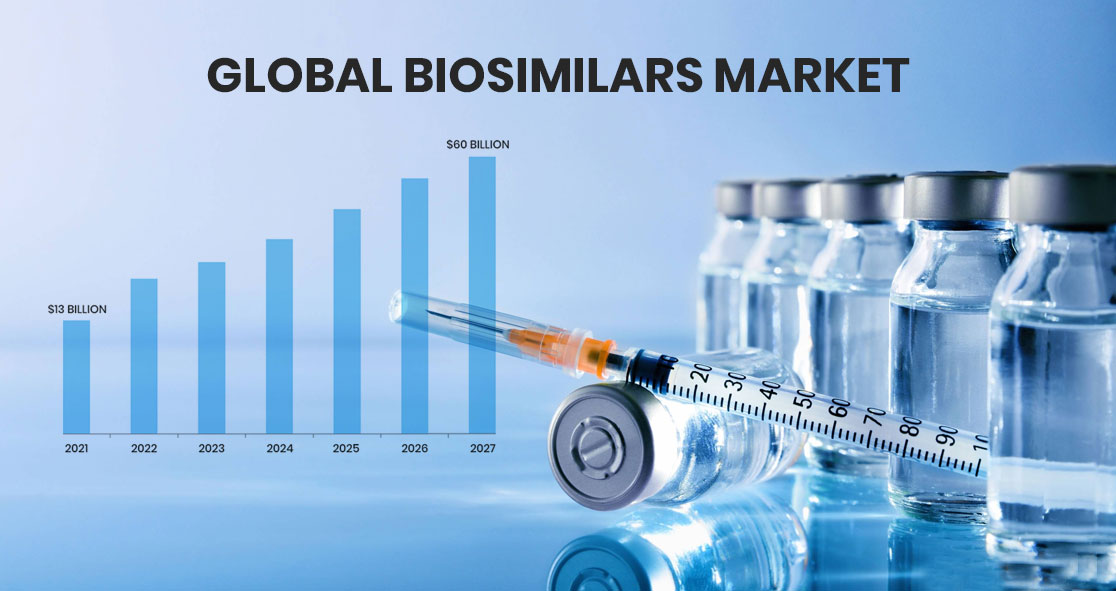The Global Biosimilars Market report, which is now available on Research and Market, has shown that the industry reached a value of $13 billion in 2021.
The market is now expected to reach $60.8 billion by 2027, at a CAGR of 26.1% during 2022-2027, after considering the factors such as brand-name patent expires of blockbuster biological drugs, lower prices, and rising incidence or prevalence of chronic diseases, according to Global News Wire.
Some of the cost-saving initiatives from governments and third-party payers could also play a key role in driving the market. They have also encouraged the use of biosimilars over biologics.
Industry experts are continuously tracking and evaluating the direct or indirect influences of the ongoing COVID pandemic.
Biosimilars, or biologics, are biotherapeutic products similar to reference biologic drugs. These products are derived from living organisms or cells. They have a complex molecular structure.
Over the years, the patents of several brand-name biologic drugs have expired, with more expected to lose patent protection in the next few years. And this would provide tremendous opportunities for manufacturers that develop biosimilars.
However, certain factors are hampering the biosimilars market growth, such as negative perception from doctors, patent extensions, and lower price differential compared to small-molecule generics.
The Global Biosimilars Market is categorized on molecules, indications, and manufacturing types.
Molecule segmentations include Infliximab, Insulin Glargine, Epoetin Alfa, Etanercept, Filgrastim, Somatropin, Rituximab, Follitropin Alfa, among others. Infliximab is currently dominating the market share.
Indication segmentations include autoimmune diseases, blood disorders, diabetes, oncology, growth deficiency, and female infertility.
Based on the type of manufacturing, the Global Biosimilars Market is segregated into in-house and contract manufacturing.
The regional segmentation includes the United States, the United Kingdom, India, Germany, France, Italy, Spain, Japan, South Korea, and others.
Some of the key industry players operating the market are Novartis, Pfizer, Teva, Celltrion, Merck, Samsung Bioepis, Eli Lilly, Biocon, Dr. Reddy’s Laboratories, Amgen, and Boehringer Ingelheim.
Overall, the report provides a key insight into the worldwide biosimilars market covering all its essential aspects. This ranges from every market detail of the industry performance, recent trends, key players, challenges, opportunities, trends, SWOT analysis, and more.





















